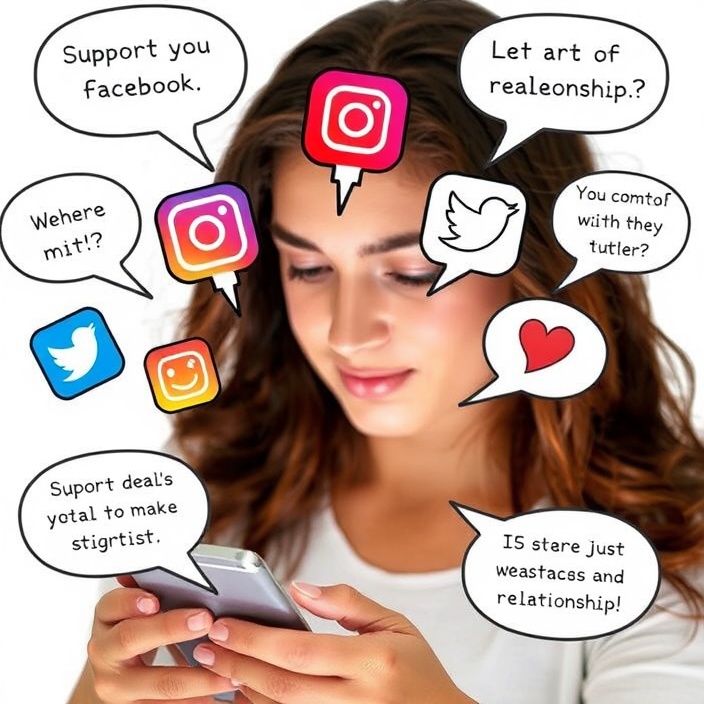The Impact of Social Media on Human Relationships: Challenges and Opportunities
In today’s digital age, social media has become an integral part of our daily lives, influencing everything from how we communicate to how we form and maintain relationships. While it offers opportunities for connection, it also presents unique challenges that can impact the depth and quality of our personal interactions. In this article, we’ll explore the positive and negative effects of social media on human relationships and offer insights on how to navigate this digital landscape effectively.
Opportunities:
1. Expanding Social Connections
One of the most obvious advantages of social media is its ability to connect people across the globe. It allows us to stay in touch with family members, reconnect with old friends, and form new relationships with like-minded individuals, regardless of geographic location.
Why It’s Positive:
Social media provides an opportunity for people to build and maintain relationships that may have been difficult to sustain in the pre-digital era. It enables real-time communication, making long-distance relationships more manageable and accessible.
Example:
Platforms like Facebook, Instagram, and LinkedIn allow us to network professionally, share milestones, and even engage in virtual communities related to hobbies, causes, or professional interests.
2. Fostering Support and Belonging
Social media can create a sense of belonging and emotional support. Online communities and groups dedicated to mental health, parenting, and hobbies provide safe spaces where individuals can share experiences, seek advice, and receive encouragement.
Why It’s Positive:
These digital spaces offer the opportunity for people to express themselves without judgment and find comfort in knowing they’re not alone in their struggles or passions.
Example:
Groups on Facebook or Reddit provide users with a platform to engage in meaningful discussions about shared interests or challenges, creating connections that may be difficult to form in person.
Challenges:
1. Superficial Connections
While social media facilitates communication, it can sometimes result in shallow, less meaningful interactions. Many users focus on the appearance of their lives rather than sharing genuine experiences, leading to superficial connections.
Why It’s Negative:
This can lead to a sense of loneliness despite having hundreds or even thousands of "friends" or followers. The lack of depth in these relationships can leave people feeling disconnected.
Example:
A study found that people who spent more time on social media reported lower levels of life satisfaction, feeling disconnected from real-life relationships.
2. Social Media Addiction and Its Impact on Face-to-Face Interactions
Excessive social media use can lead to addiction, where users feel compelled to check notifications, scroll through feeds, and compare themselves to others constantly. This often reduces the quality of real-life interactions and can create emotional distance between individuals.
Why It’s Negative:
When we become absorbed in the virtual world, we may neglect in-person relationships, causing feelings of isolation and weakening the emotional bonds we share with others.
Example:
A study by the American Psychological Association found that individuals who spend more time on social media are more likely to experience anxiety, depression, and feelings of isolation, particularly among teens and young adults.
3. Privacy Issues and Miscommunication
Social media platforms are not always private, and the sharing of personal information online can sometimes lead to misunderstandings or conflicts. Miscommunications can occur, as tone and context are often lost in written messages, leading to unintentional offense or confusion.
Why It’s Negative:
Over-sharing or making personal relationships public can lead to breaches of privacy or unwanted attention, causing stress or harm to individuals involved.
Example:
Public arguments or relationship dramas aired on social media can escalate quickly, damaging personal relationships or causing reputational harm.
Navigating the Challenges:
1. Setting Boundaries
To maintain healthy relationships in the age of social media, it’s important to set boundaries. This means limiting time spent on social media, avoiding oversharing, and making sure that face-to-face interactions remain a priority.
2. Fostering Authenticity
Instead of focusing on curated content and appearances, social media users can strive for authenticity by sharing real experiences and engaging in meaningful conversations.
3. Digital Detoxes
Taking regular breaks from social media can help individuals reconnect with themselves and their loved ones, allowing them to focus on nurturing real-life relationships.
Conclusion:
Social media is a powerful tool that shapes how we form and maintain relationships. While it offers numerous opportunities to connect and find support, it also presents challenges that can impact the quality of our interactions. By setting boundaries, prioritizing authenticity, and being mindful of our social media habits, we can use these platforms to enhance rather than diminish our relationships.
